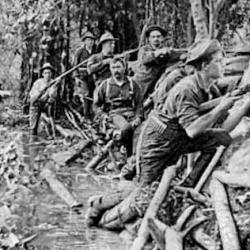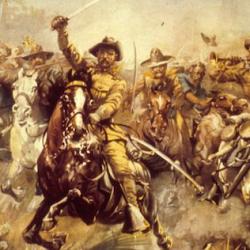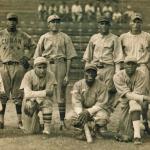“In 1849, some ninety thousand young men swarmed to the gold fields (two-thirds of them were American); in 1850, nearly as many more elbowed their way into the scrum, and the throngs kept coming all through the early 1850s. . . . In the four years from 1849 through 1852, more than 1 percent of the American population moved to California. . . . rushing off to a barely known destination thousands of miles away.”
Many were on foot – sleeping under the stars for the first time in their lives. Others came by boat – though they were settled landlubbers.
Edward Dolnick’s The Rush (quotation above from p. 18-19) tells the story of these heady days. But hovering over his book is the recognition that the gold rush not only rearranged the population and made California the Golden State and field of dreams, but also left a decisive mark on the American psyche: “In America in the mid-1800s, everyone knew that two laws governed the world. First, the path to success was long and difficult; the race was not to the swift but to the diligent, who collected their pennies day after day. Second, calamity came in countless guises and swooped down without warning” (7). After the gold rush, the first law was rendered obsolete. It was possible to rise overnight.
The story he tells is of the Californization of California, the pre-requisite to the Californization of America. Because of the rush, California was different – cosmopolitan, religiously indifferent, young, reckless, as Rudyard Kipling recognized during a visit to San Francisco in the 1880s. Kipling wrote, “The young men rejoice in the days of their youth. They gamble, yacht, race, enjoy prize-fights and cock-fights, the one openly, the other in secret; they establish luxurious clubs; they break themselves over horse-flesh and other things, and they are instant in a quarrel. At twenty they are experienced in business, embark in vast enterprises, take partners as experienced as themselves, and go to pieces with as much splendor as their neighbors” (quoted, 296).
California was the land of second changes, where failure seemed to be more a requirement than an option: “The notion in the East had always been that to fail in business was to suffer a humiliation that could last a lifetime. . . . But Californians seemed almost to take pride in their falls.” One miner write, “When men fail they do not despair . . . they hope to be rich again” (296).
Typical California. Which is to say, typical American.















